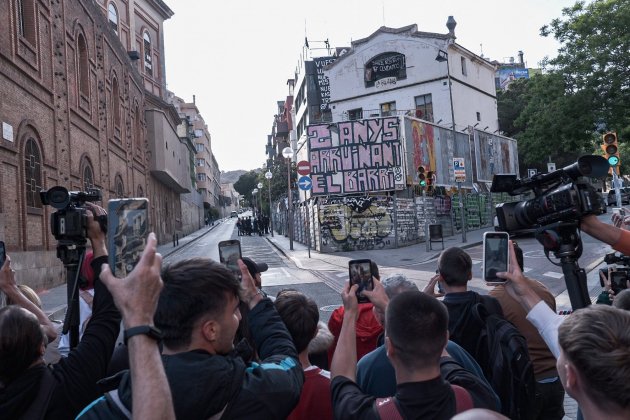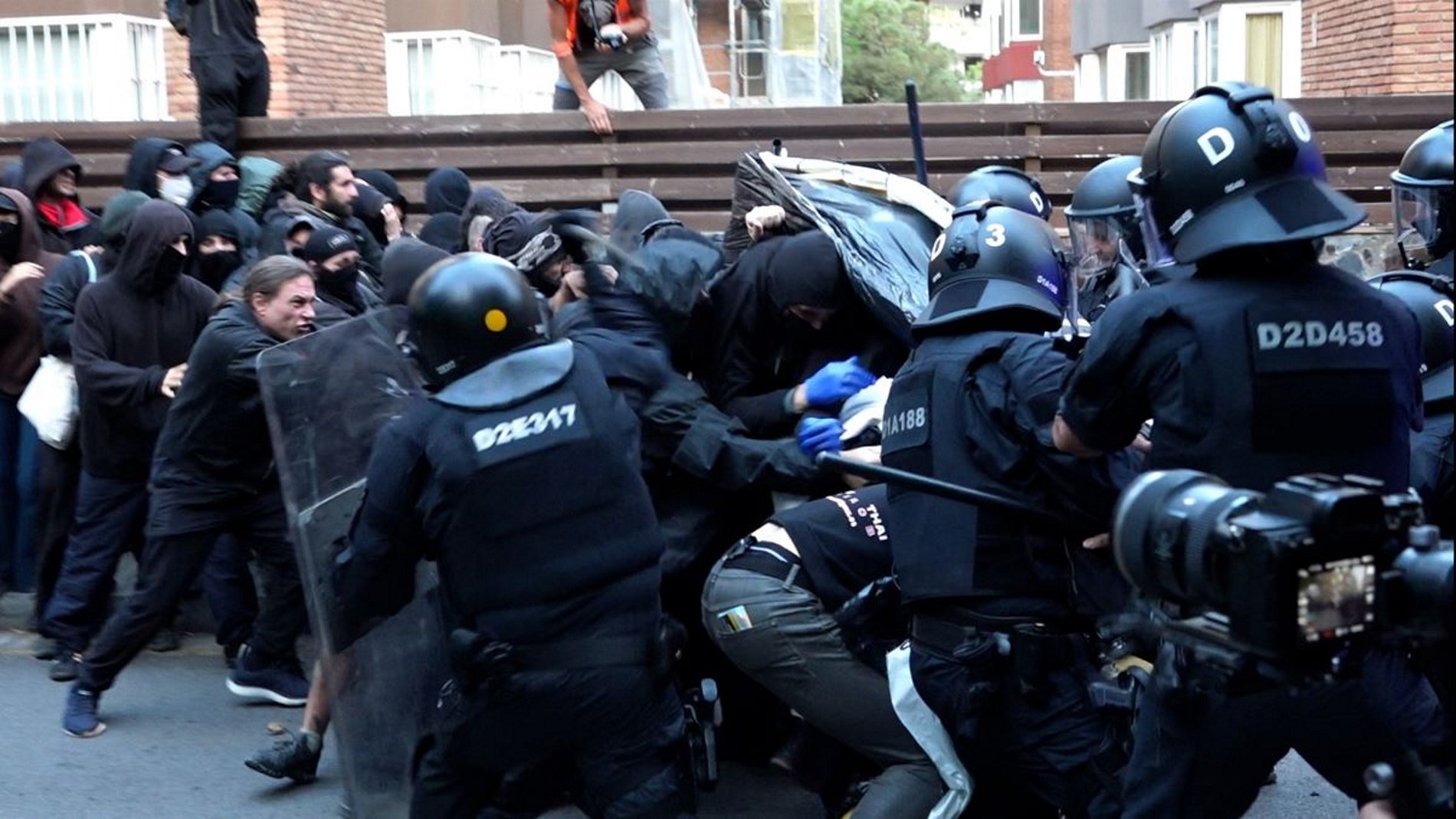It was not a typical spring evening in La Bonanova, one of Barcelona's more affluent suburbs. In fact, this Thursday had been labelled as "D-Day" by the so-called Desokupa company, which specializes in evicting squatters from homes they are occupying. The company itself was not seen in action, but on a housing issue that has sharply divided opinion, the simultaneous gathering of pro-squatter and anti-squatter groups in Plaça de la Bonanova led to tense situations, with incidents between some protesters and the Mossos police in Carrer del Solsonès. A pro-squatter group, who had arrived from Plaça Lesseps, tried to approach Plaça de la Bonanova through this street, which had been blocked by the Mossos d'Esquadra, and this caused the first violent incidents. The groups supporting the squatters didn't accept their exclusion from the area, and the Mossos enforced their perimeter with batons.
In the neighbourhood of La Bonanova and Sant Gervasi, tension had been growing in recent days, initially because of a private company's threat to carry out an eviction, and then because of the two opposed demonstrations called in response, which were both scheduled to end in the same place. Thus on Thursday afternoon, one march left Plaça de Lesseps, in Gràcia, with around 500 people, called by squatter groups in the city, to proceed to two squatter houses in La Bonanova, known as el Kubo ("the cube") and the la Ruïna ("ruin"), which have become protagonists of the start of the campaign for the May 28th municipal elections. The other demonstration took place in Plaça de Ferran de Casablancas and was called by residents of the area and the Desokupa group. If the first protest aimed to assert the rights of occupants of the two squatter houses in the heart of Sarrià, the second demanded the eviction of the squatters due to the law and order problems they generate in the neighborhood. This second demonstration attracted around 100 people.
As planned, the Mossos d'Esquadra deployed a major police operation that completely blocked off Plaça de la Bonanova with the aim of avoiding confrontations between the two groups. That is why they tried to keep the two protest masses separate at all times. The pro-squatter demonstration received jeers from some residents.
These two buildings, the Kubo and the Ruïna, are not among the historical centres of the long-running anti-system struggle in the city of Barcelona. One was squatted in 2016 and the other in 2019. Despite having little activity and few occupants - before the outbreak of the problem only about twenty people lived there - the confrontation with the neighbours and the participation of Desokupa, which squatters associate with the extreme right, has revived the movement and now they have a network of support that goes beyond the limits of this neighbourhood in the city of Barcelona.

The two houses are owned by Sareb, the so-called "bad" bank of the Spanish government which took over real estate assets of publically-rescued financial institutions, and it had asked for the legal eviction of the buildings' occupants. As two separate properties, although connected, two separate judicial proceedings had to be carried out. That for the Kubo has already been completed and was even scheduled for March 23rd, but the police asked to postpone it so that it could be done on the same day as the Ruïna. The police justified this by ensuring that, to be more effective and to be able to act more safely in the face of possible incidents, it was necessary to evacuate both houses at the same time.
Thus, a critical date for all involved arrives when the court process of the Ruïna reaches its end, when the judge of Barcelona Court 39 is expected to issue a ruling and set a day to carry out the eviction. This Thursday, hours before the demonstration that was called, it also became known that the judge had rejected the request for interim measures requested by the owner who wanted to carry out an express eviction. Thus the next key date will be in June. The Mossos police are confident that the tension will calm, especially after the municipal elections, but a permanent operation will be maintained with plainclothes and uniformed agents to avoid confrontations.

